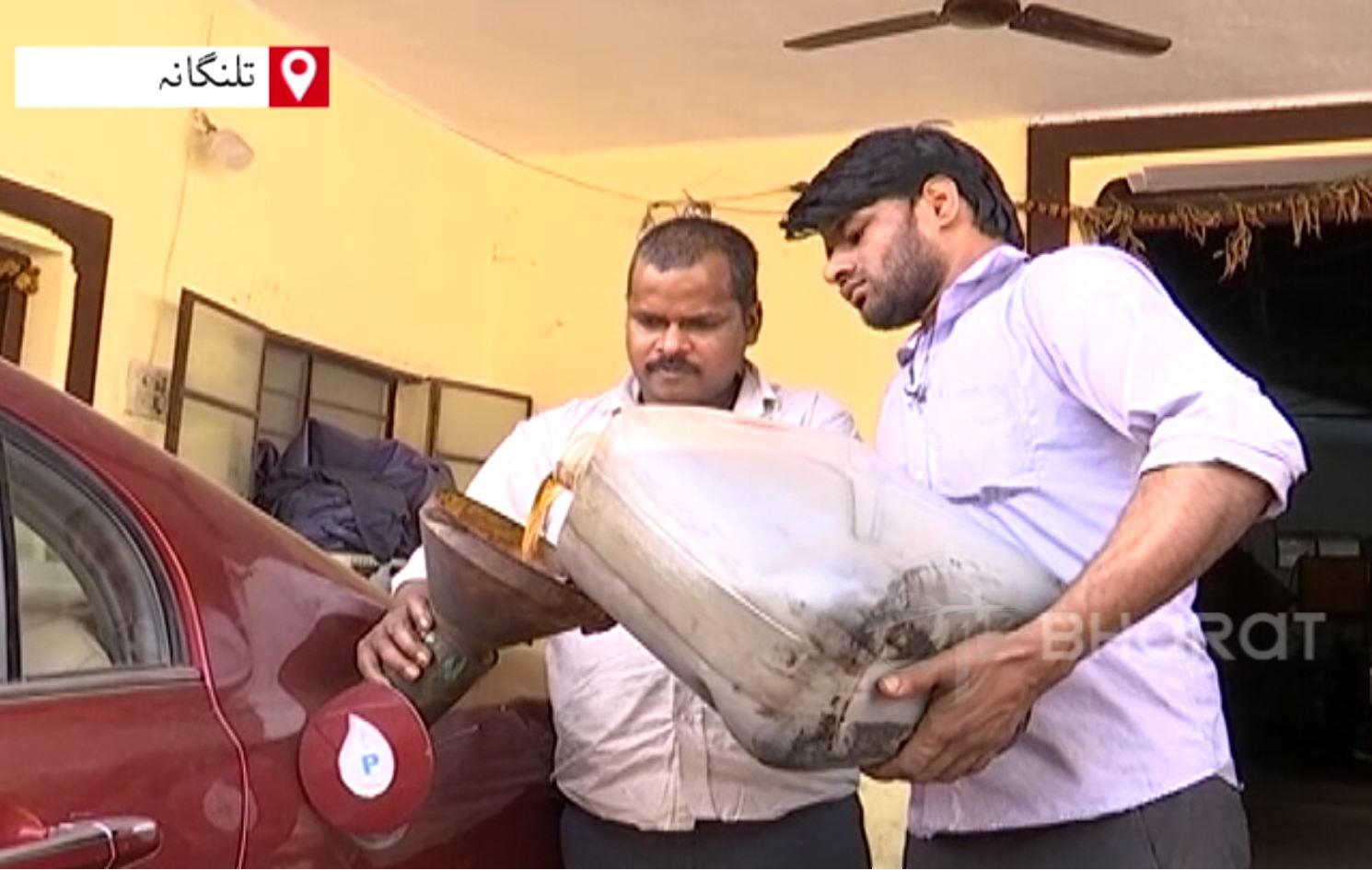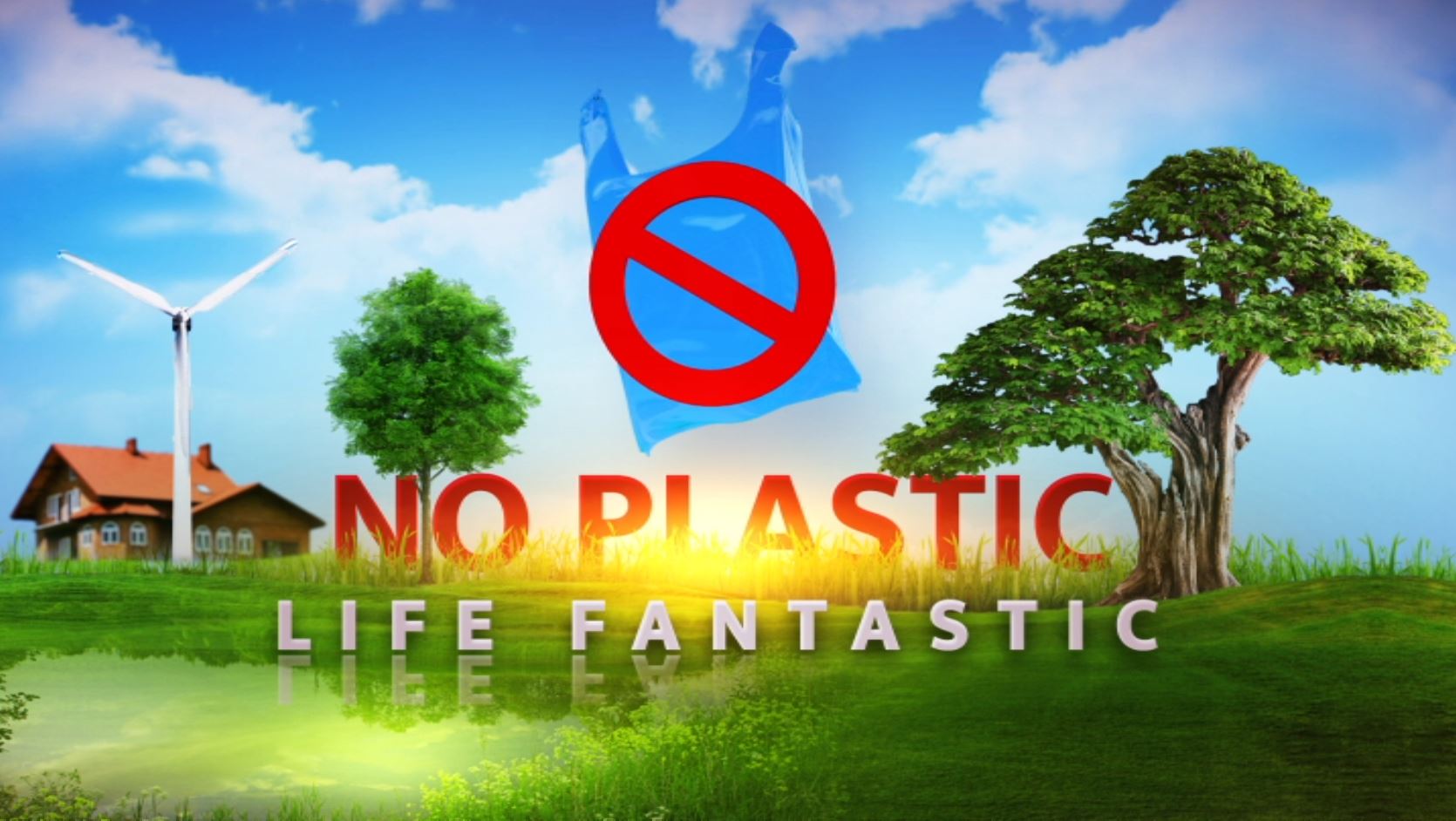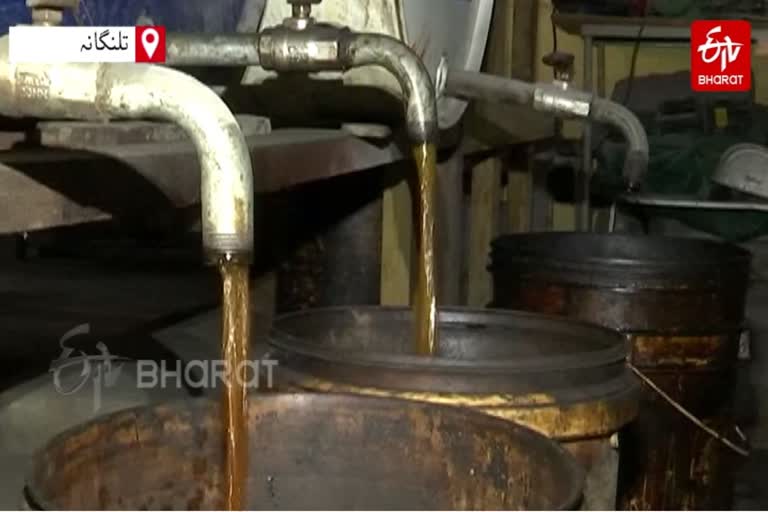پلاسٹک کچرے کے خطرات سے نمٹنے کے لیے ایک مکینیکل انجینئر نے پلاسٹک کے فُضلے کو ایندھن میں تبدیل کرنے کا دعوی کیا ہے۔
ملک بھر میں لوگ اپنی سطح پر پلاسٹک کے خاتمے کی کوششیں کر رہے ہیں۔ تاہم ستیش کمار ان سے قدرے مختلف ہیں۔ ستیش حیدرآباد میں مقیم ایک مکینیکل انجینئر ہیں، جو ناقابل استعمال پلاسٹک سے مصنوعی ایندھن تیار کر رہے ہیں۔
پلاسٹک سے تیار شدہ پٹرول گاڑی میں ڈالتے ہوئے ستیش نے بتایا کہ یہ ایک انوکھا طریقہ ہے، جسے انہوں نے چمنی اور پانی کے بغیر پلاسٹک کو پروسیس کے لیے 6 برس قبل شروع کیا تھا۔ اس طرح اگر اچھا پلاسٹک ہو تو ایک کلو پلاسٹک سے ایک لیٹر تیل تیار کیا جا سکتا ہے۔
ستیش تین مرحلوں میں اس عمل کو انجام دیتے ہیں، جہاں پلاسٹک گرم ہونے کے بعد ٹوٹتا ہے، گیس میں تبدیل ہوتا ہے اور پھر گاڑھا ہو جاتا ہے۔ اس عمل کے نتیجے میں تین طرح کے مصنوعی ایندھن یعنی ڈیژل، پٹرول اور گیس پیدا کیے جاتے ہیں۔
ستیش کا کہنا ہے کہ ان سبھی ایندھنوں کی تیاری کے لیے جو طریقہ اختیار کیا جاتا ہے، وہ پلاسٹک پائرولیسس سے مختلف ہے، اس سے باقیات نہیں نکلتے ہیں۔
انہوں نے کہا کہ اس عمل کے دوران پیدا ہونے والی گیس کی مدد سے جنریٹر چلایا جاتا ہے، اور کاربن فضلہ پودوں میں کھاد کے طور پر استعمال ہوتا ہے۔
لوگوں کے لباس کا تقریبا 80 فیصد حصہ پلاسٹک سے تیار ہوتا ہے۔ تمام طرح کی مٹھائیاں اور طبی سامان پلاسٹک پر مبنی ہیں۔ اس طرح کہا جا سکتا ہے کہ، لوگ آج کل پلاسٹک کے بغیر نہیں رہ سکتے۔
ستیش کا کہنا ہے کہ پلاسٹک کا استعمال ترک کرنے کے بجائے دانشمندی کے ساتھ اس کے استعمال کی ضرورت ہے۔ ان کا مقصد لوگوں کو یہ سمجھانا ہے، کہ پلاسٹک بھی ایک طرح کا ایندھن ہے، جسے چھوٹے پیمانے پر پروسیس کیا جا سکتا ہے۔
کمار کا ماننا ہے پلاسٹک کے استعمال سے متعلق سخت قوانین بنانے اور نافذ کرنے کی ضرورت ہے۔ ساتھ ہی خلاف ورزی کی صورت میں جرمانہ بھی عائد کرنے کی ضرورت ہے، تاکہ لوگ پلاسٹک کا استعمال دانشمندی سے کر سکیں۔
انہوں نے بتایا کہ یہاں پانچ قسم کے فضلہ جات ہیں، جن میں شیشہ، دھات، کاغذ، پلاسٹک اور نامیاتی فضلے شامل ہیں۔ ان سب فضلوں سے دانشمندی کے ساتھ ہی موثر طریقے سے نمٹا جاسکتا ہے۔
انہوں نے بتایا کہ زمین پر پلاسٹک اس قدر وافر مقدار میں موجود ہے کہ اس کے بند ہونے کے بعد بھی پہلے سے جمع شدہ پلاسٹک کے فضلے سے نمٹنے میں برسوں کی مدت درکار ہے۔
ستیش کا کہنا ہے کہ اگر بھارت کی طرح بیداری پیدا کرنے کے اقدامات صحیح طریقے سے کیے جائیں، تو بھارت پلاسٹک کا ختم ہونے والا مرکز بن سکتا ہے۔
Intro:Body:
Dec 26 - Plastic Campaign Story - Waste to no waste: Hyderabad engineer's initiative to generate fuel from plastic
Location: Hyderabad
Telangana
Waste to no waste: Hyderabad engineer's initiative to generate fuel from plastic
In a row to fight the peril of plastic waste, a mechanical engineer has claimed of turning plastic waste into fuel.
According to a report, by the year 2050, there would be more plastic in the oceans than fishes. This is a devastatingly shrewd fact.
People across the country are making efforts at eradicating plastic on their own level. Satish Kumar is one of them.
Satish is a Hyderabad-based engineer who is using end-life plastic, that cannot be recycled anymore to produce synthetic fuel.
“About 500 kg of non-recyclable plastic can produce 400 litres of fuel,” said Mr Kumar.
Kumar uses a three-step reverse engineering process where the plastic is indirectly heated in vacuum, de-polymerised, gasified and then condensed.
As a result of this, three synthetic fuels, namely diesel, aviation fuel and petrol(similar) are generated. These fuels resemble petrol in their properties but are different from it.
The process being used for the production of these combustible fluids is entirely different from plastic pyrolysis. This unique system of fuel generation does not require a chimney and leaves back no residue.
The gas produced in the process is used to run generators and residual carbon waste is used as fertilizer in plants.
About 80 per cent of the clothes people wear are made up of plastic. All the confectionery products and medical supplies are plastic-based. Today, people cannot live without plastic.
And Satish says that they do not need to. He says that the need is to use plastic wisely and not 'not using it'.
His aim is to make people understand that plastic is nothing more than fuel that can be processed at smaller levels too.
Plastic is so abundantly present on the earth that even after its generation is stopped, it would take years to tackle the issue of already accumulated plastic waste.
Satish Kumar asserted that there is a need to make and impose strict laws and charge fines so that people think about wisely using plastic.
Kumar believes that there are only five types of waste- glass, metal, paper, plastic and organic waste and all of these could be dealt with wisely and effectively.
Satish says that India can become the vanishing hub of plastic if awareness about initiatives like his is spread properly.
----------------------------------------------------
Location: Hyderabad
Telangana
VO: In a row to fight the peril of plastic waste, a mechanical engineer has claimed of turning plastic waste into fuel.
GFX: Fuel from plastic
VO: People across the country are making efforts at eradicating plastic on their own level. Satish Kumar is one of them. Satish is a Hyderabad-based engineer who is using end-life plastic, that cannot be recycled anymore to produce synthetic fuel.
GFX: Synthetic fuel with zero residue
VO: Kumar uses a three-step reverse engineering process where the plastic is indirectly heated in vacuum, de-polymerised, gasified and then condensed. As a result of this, three synthetic fuels, namely diesel, aviation fuel and petrol(similar) are generated.
GFX: Depolymerisation of plastic waste
VO: The process being used for the production of these combustible fluids is different from plastic pyrolysis and generates no residue. The gas produced in the process is used to run generators and residual carbon waste is used as fertilizer in plants.
GFX: Gas for running generators
______________________________________________________________
Byte: Satish Kumar
Engineer
Time: (0.01- 1.22)
______________________________________________________________
VO: About 80 per cent of the clothes people wear are made up of plastic. All the confectionery products and medical supplies are plastic-based. Today, people cannot live without plastic.
GFX: Part of life
VO: And Satish says that they do not need to. He says that the need is to use plastic wisely and not 'not using it'. His aim is to make people understand that plastic is nothing more than fuel that can be processed at smaller levels too.
GFX: Wise use of plastic
VO: Kumar asserted that there is a need to make and impose strict laws and charge fines so that people think about wisely using plastic.
GFX: Need of strict laws
VO: Kumar believes that there are only five types of waste- glass, metal, paper, plastic and organic waste and all of these could be dealt with wisely and effectively.
GFX: All waste manageable
VO: Satish says that India can become the vanishing hub of plastic if awareness about initiatives like his is spread properly.
GFX: Vanishing hub of plastic waste
Conclusion:





